CBP
Latest

Records reveal the scale of Homeland Security's phone location data purchases
Records show Homeland Security bought massive amounts of phone location data — including a huge burst in 2018.
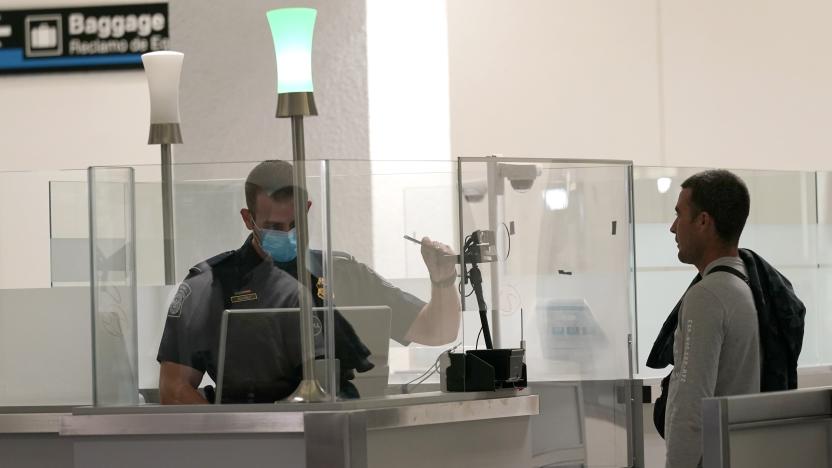
Civil rights groups demand CBP stops facial recognition expansion at airports
The ACLU, Electronic Frontier Foundation and others objected to a proposed rule change.
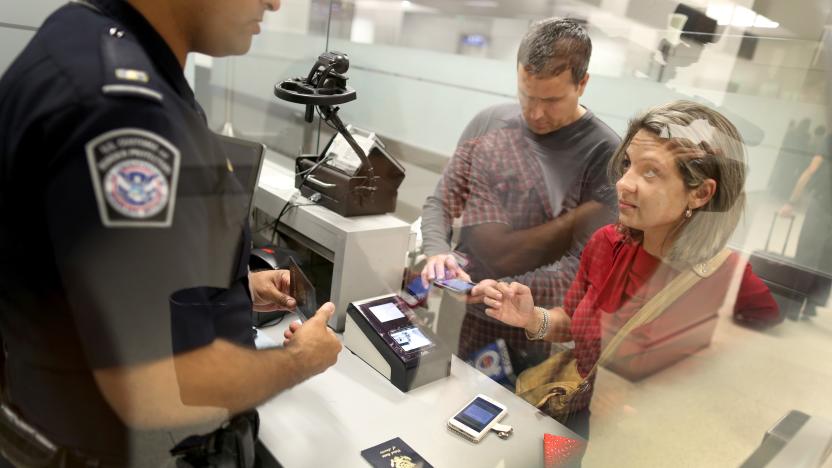
Homeland Security is investigating CBP's warrantless phone tracking
The Department of Homeland Security (DHS) is launching an inspector general investigation into the US Customs and Border Protection (CBP)’s warrantless use of commercially-available phone location data to track individuals.

US Border Patrol seized OnePlus Buds as 'counterfeit Apple AirPods'
In what looks like an embarrassing error, US Customs and Border Protection (CBP) has seized a shipment of OnePlus Buds, believing they were “2,000 counterfeit Apple AirPods.
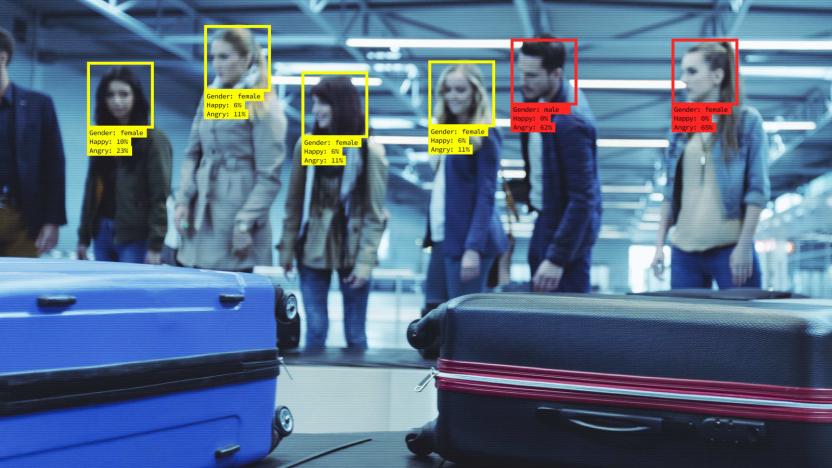
ACLU sues Homeland Security over airport facial recognition records
There's no question that AI surveillance is on the rise, but there are a lot of questions about just how extensively law enforcement agencies, like the Department of Homeland Security (DHS), are using it. In an attempt to increase transparency, the American Civil Liberties Union (ACLU) is suing DHS -- along with Customs and Border Protection (CBP), Immigration and Customs Enforcement (ICE) and the Transportation Security Administration (TSA). The ACLU is requesting records on the use of face surveillance at airports and borders, as well as the agencies' plans for future use.

Clearview AI leak names businesses using its facial recognition database
One of the most vehement arguments against Clearview AI's practice of scraping billions of photos from millions of public websites to build its facial recognition database was that the company's data storage and security protocols were both untested and unregulated. On Wednesday, Clearview AI claimed that its facial recognition database was hacked, giving intruders access the the company's full client list, which Buzzfeed News has acquired.

Homeland Security doesn’t want Americans' airport face scans after all
Earlier this week, reports circulated that Homeland Security wanted to scan the faces of travelers, including US citizens, as they enter or leave the country. Naturally, critics raised concerns that the practice would violate citizens' privacy and that the "intrusive surveillance technology" could lead to abuses of power. Now, US Customs and Border Protection (CBP) says that it will allow US citizens to voluntarily participate in the program. In other words, US citizens can opt out.
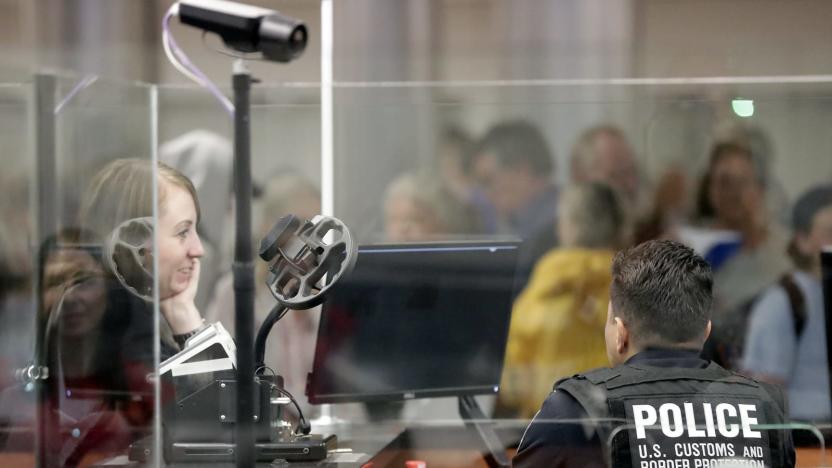
Federal judge rules suspicionless device searches at the border are illegal
Civil liberties advocates just scored an important victory in a bid to prevent arbitrary device searches at the US border. A federal court handling a 2017 lawsuit has ruled that US policies allowing device searches without valid suspicion or warrants violate Fourth Amendment protections against unreasonable searches and seizures. Judge Denise Casper noted that an exemption for searches at the border was "not limitless," and still needed to strike a balance between privacy and government interests. That usually means focusing on contraband, she said.
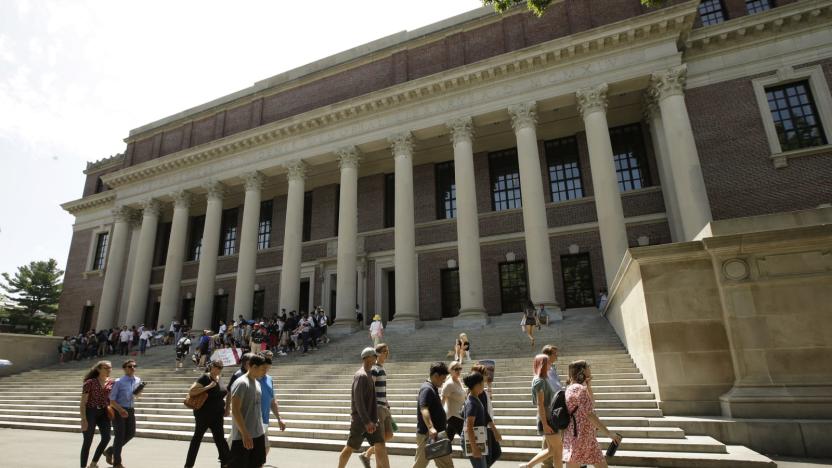
Harvard student deported based on friends' social media posts
If you thought the US' decision to screen social network posts for visa applicants risked giving innocent people the boot, you guessed correctly. US officials have deported new Harvard student Ismail Ajjawi not based on his own posts, but those on his friends list. While he said he avoided politics in his own posts, some of his contacts reportedly expressed "points of view that oppose the US." It didn't matter that he didn't interact with them -- Customs and Border Protection promptly cancelled his visa while he was still in the airport for questioning.
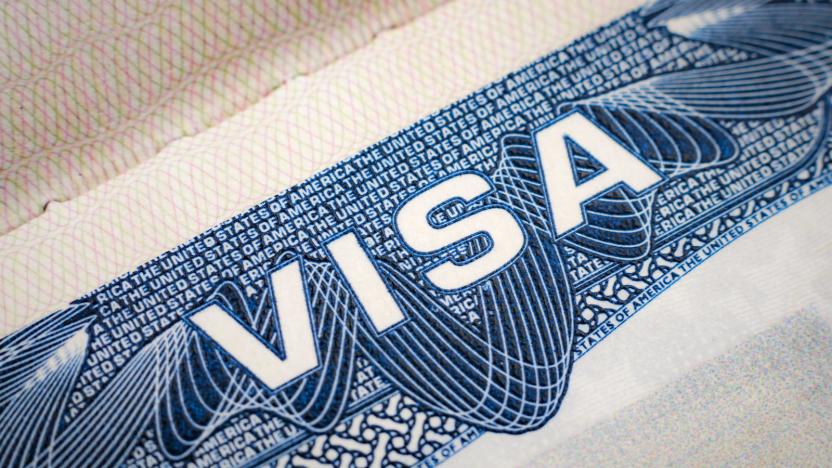
Air travelers entering US face long delays as CBP computers crash
Air travellers entering the US were delayed on Friday after a computer issue prevented customs officials from processing their immigration information. The CBP is reportedly investigating the problem but have yet to identify the cause.
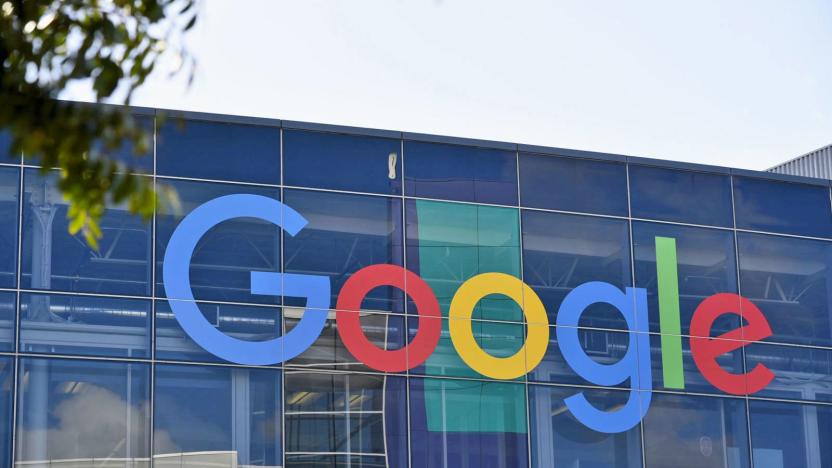
Google employees don't want it to work with US border agencies
In a newly published petition, Google employees are demanding the search giant not bid on a recent cloud computing contract from the US Customs and Border Protection (CBP) agency.
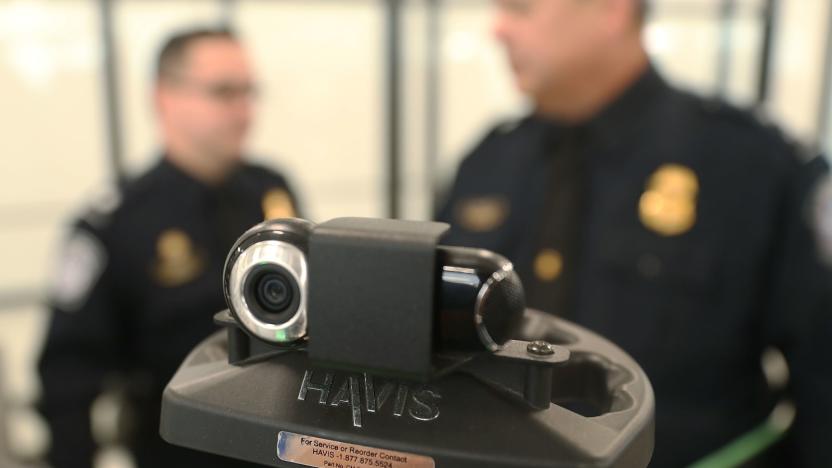
Hackers steal traveler photos and license plates from US Customs
If you were wondering why it can be risky for governments to collect traveler images en masse on connected systems... well, here's why. US Customs and Border Protection has confirmed that hackers stole traveler images from a subcontractor, including photos of people entering or leaving the country as well as copies of their license plates. In a statement, CBP said that the subcontractor had "violated mandatory security and privacy protocols" by transferring the data to its own network.
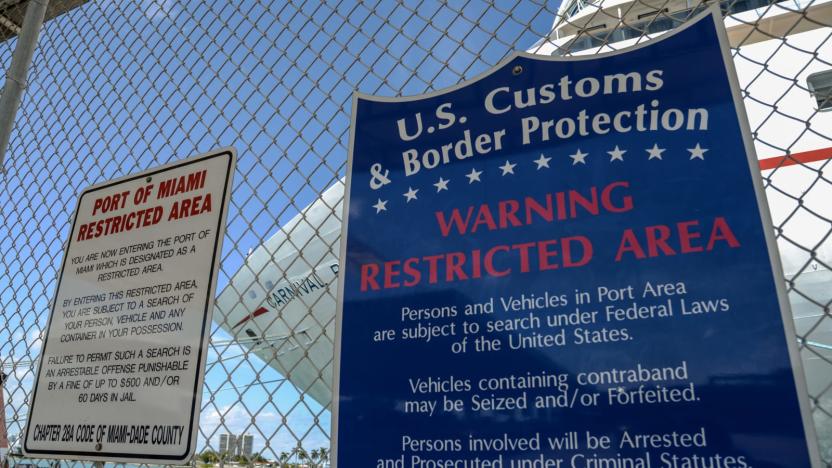
ACLU: border agents regularly perform 'warrantless' device searches
Privacy advocates have long been concerned that US border agents may be overstepping their boundaries when searching devices, and the ACLU just obtained evidence appearing to support that theory. The civil rights group has motioned for summary judgment in its lawsuit against the Department of Homeland Security after its discovery process revealed far-reaching policies for "warrantless and suspicionless" searches. Reportedly, both Customs and Border Protection as well as Immigration and Customs Enforcement have claimed "near-unfettered authority" to search phones, PCs and other devices, even though the requests fall well outside their purview.

US border officers don't always delete collected traveler data
Privacy advocates aren't just concerned about warrantless device searches at the border because of the potential for deliberate abuse -- it's that the officials might be reckless. And unfortunately, there's evidence this is the case in the US. Homeland Security's Office of the Inspector General has released audit findings showing that Customs and Border Protection officers didn't properly follow data handling procedures in numerous instances, increasing the chances for data leaks and hurting accountability.
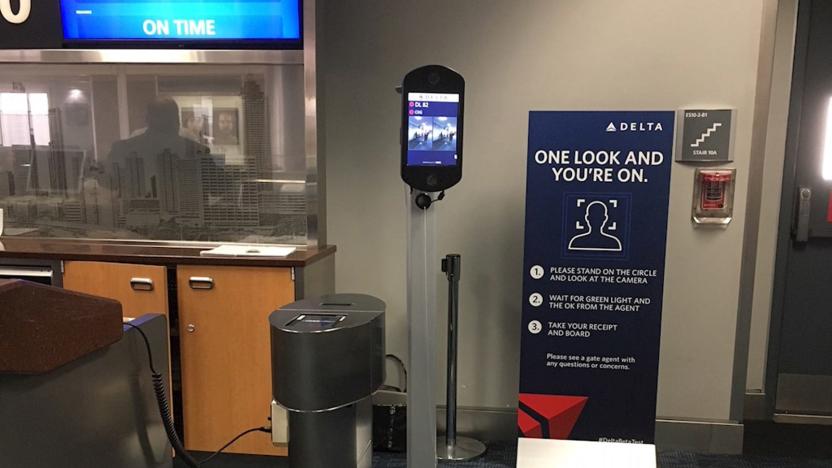
TSA outlines its plans for facial recognition on domestic flights
The Transportation Security Administration is determined to make facial recognition and other biometrics a regular part of the airport experience, and it now has a roadmap for that expansion. The effort will start by teaming with Customs and Border Protection on biometric security for international travel, followed by putting the technology into use for TSA Precheck travelers to speed up their boarding process. After that, it would both devise an "opt-in" biometric system for ordinary domestic passengers and flesh out a deeper infrastructure.
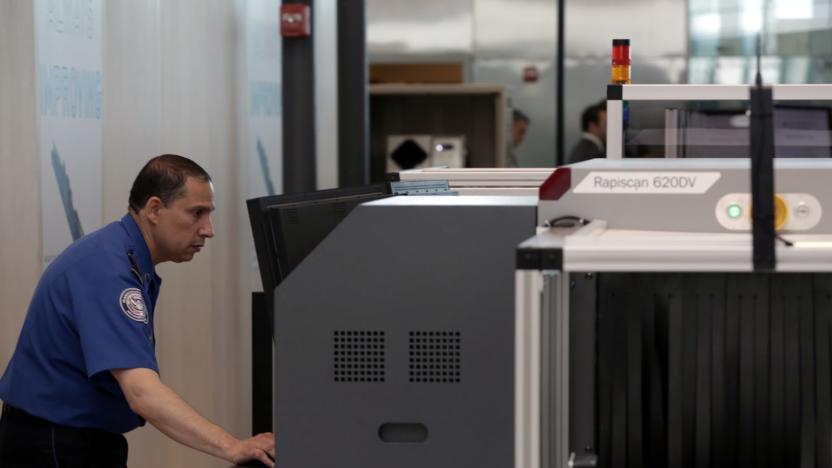
Face scanning in US airports is rife with technical problems
If you've had misgivings about the effectiveness of Homeland Security's airport face scanning (let alone the privacy implications), you're not alone. The department's Inspector General has issued a report warning that the scanning system is struggling with "technical and operational challenges." Customs and Border Protection could only use the technology with 85 percent of passengers due to staff shortages, network problems and hastened boarding times during flight delays. The system did catch 1,300 people overstaying their allowed time in the US, but it might have caught more -- and there were problems "consistently" matching people from specific age groups and countries.

New lawsuit shows your phone is unsafe at American borders
A recent case filed in federal court, in which an American woman had her iPhone seized and cracked by Customs and Border Protection in a New Jersey airport puts a whole new spin on the things we now need to worry about when leaving the country. It appears that now everyone's phones, despite country of origin or cause, are subject to nonconsensual seizure and search -- even if we refuse to give up our passwords. If you're not caught up on the story, news hit this week that a Staten Island mom coming home from a February trip with her 9-year-old daughter from Switzerland had her iPhone snatched, kept for months and accessed for no given reason. Apple did not respond to a request for comment by publication time.

After Math: Gaming the system
With Gamescom 2018 now wrapping up and IFA 2018 just getting started, there's more than enough video game news to go around. But the latest salvos in the console wars weren't the only things going on in the tech industry this week. VW announced that it's investing $4 billion in a proprietary connected car architecture, Facebook phased out 5,000 ad options in an effort to fight discrimination on its platform and the CBP actually did something right for once. I know, I'm shocked too.
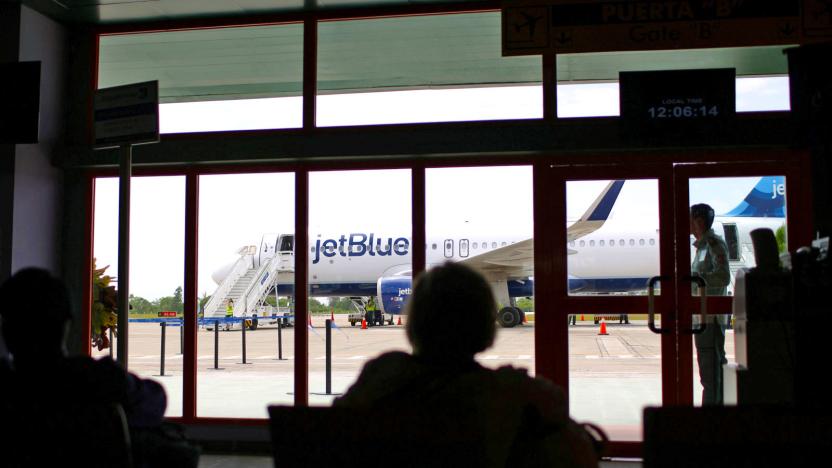
Your face could be your ticket to fly on JetBlue (updated)
Airports are where hopes and dreams go to die. But JetBlue thinks that one method of how people typically pass the time could be used to speed up the boarding process. For some passengers, a taken-at-the-gate photo will suffice to get them to their sky-chair. It's part of a collaboration between the airline and the US Customs and Border Protection (CBP) office, Jetblue announced today.
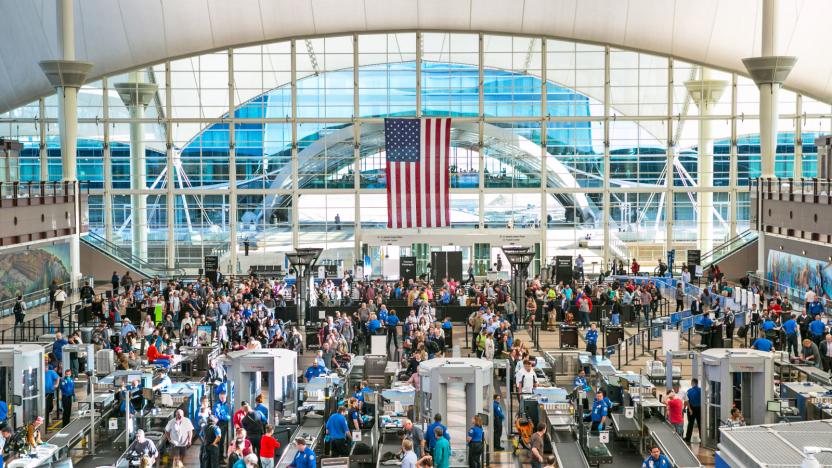
Airports may use face recognition to screen US citizens (update: more info)
Right now, the US is trotting out an airport security plan revolving around facial recognition. It's supposed to automatically register visitors to the US when they leave, and signal when they come back. However, Customs and Border Protection now wants to expand the effort to include virtually every situation where you normally need an ID -- and that could include scanning US citizens. The agency's John Wagner has floated the possibility that face recognition could also be used to scan all arrivals, TSA checkpoints and lounge access, including citizens. CBP hasn't committed to a firm plan, but it tells The Verge it wants to "open the dialogue" to people outside its walls.








